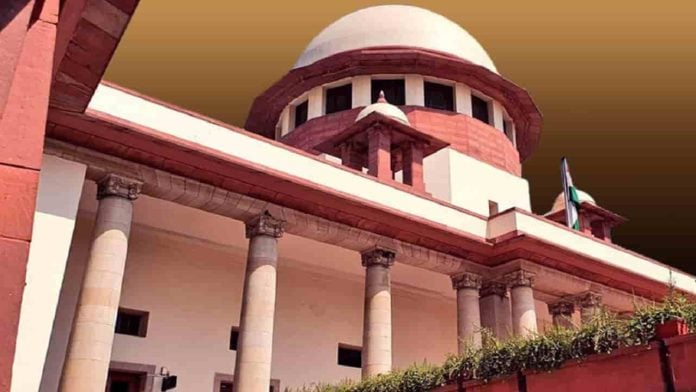The Supreme Court on Thursday reserved its judgment on whether the legal immunity enjoyed by legislators under Articles 105(2) and 194(2) of the Constitution protected them from prosecution for taking bribe.
The Constitution Bench of Chief Justice of India (CJI) D.Y. Chandrachud, Justice A.S. Bopanna,
Justice M.M. Sundresh, Justice P.S. Narasimha, Justice J.B. Pardiwala, Justice P.V. Sanjay Kumar and Justice Manoj Misra heard arguments of the Central government as well as rejoinder submissions by the petitioner today.
During the course of hearing, Attorney General (AG) R. Venkataramani suggested a functional test to determine immunity. He said the test could extend to speech or acts of voting needed to discharge the duty of a Legislator, without fear of consequences.
Article 105(2) gave the Members of Parliament (MPs) immunity from prosecution in respect of anything said or any vote given by them in Parliament or on any parliamentary committee.
As per Article 194(2), a similar protection was granted to the Members of Legislative Assemblies (MLAs).
Earlier on Wednesday, a Senior Advocate told the Supreme Court that people with criminal backgrounds entering Parliament and State Legislative Assemblies and making laws was having a serious impact on the democratic set up in the country.
In a written submission over discussion on parliamentary immunity in the Apex Court, Senior Advocate Vijay Hansaria said the constitutional provisions regarding parliamentary privilege and immunity from prosecution by the legislators must be interpreted having regard to the context of large scale criminalisation of politics and on the touchstone and through the prism of constitutional morality.
He said the provisions of the Constitution must be so interpreted that the persons committing crime were brought to justice and not able to claim immunity from criminal liability in the garb of parliamentary privilege.
On September 20, the Apex Court had referred the matter in the Sita Soren case to a larger seven-judge bench for reconsidering its 1998 judgement in the PV Narasimha Rao case, related to the 1993 JMM bribery scam, which granted immunity to MPs/MLAs from prosecution if they accepted bribery and voted or asked a question in a particular manner.
The Senior Advocate stated that the majority verdict in the P.V. Narasimha Rao case (1998) did not lay down the correct law and the view expressed by the minority judgement (by Justice S.C. Agarwal) may be held to be the correct law by the present larger bench.
He said the majority judgement granting immunity to all the acts of a Member of Parliament, which relate to or concern or have a connection or nexus with anything said or a vote given, by the person in Parliament, was too wide and did not encompass within the expression ‘in respect of’ used in clause (2) of Article 105 of the Constitution.
Hansaria contended that the expression ‘in respect of’ must be interpreted to mean only those acts which were essential for undertaking the legislative functions.
No privilege could be claimed from criminal prosecution as the penal laws of the country were applicable to the legislators in the same way as applicable to the ordinary citizens. The privileges were only those which began and terminated within the walls of the House. All actions outside the House were subject to adjudication by the Courts, he added.
The Senior Advocate termed the immunity conferred under Articles 105(2) and 194(2) as ‘qualified immunity,’ which was not ‘absolute’.
He said qualified immunity balanced two competing rights, namely, grant freedom of speech and vote to the Parliamentarians inside the House and held them accountable for any crime committed outside the House, he added.
Hansaria said the commission of any crime could never relate to ‘in respect of anything said or any vote given by him in Parliament;’ noting that no legislator could claim immunity from criminal prosecution by seeking the protection of parliamentary privilege conferred under Articles 105(2) and 194(2).
He said every person was liable for prosecution for offences committed by him/her under the penal law of the country. If the immunity from prosecution was granted, the criminalisation of politics would get a boost instead of being curbed.
The immunity would be an easy escape for the law makers to avoid consequences of all penal offences, including heinous offences, by claiming that such an act was ‘in respect of’ anything said or any vote given by him in Parliament, he submitted.
Hansaria said if allowed, the immunity would be limited not only to corruption cases, but could be claimed even in respect of serious and heinous offences, such as breach of Protection of Children from Sexual Offences Act, 2012; Unlawful (Activities) Prevention Act, 1967; Prevention of Money Laundering Act, 2002; hate speech etc.
The Senior Advocate said it would be a licence to the legislators to commit a crime, without fear of prosecution and thereafter claim immunity by creating a so-called nexus with the speech or vote given in the House.
Hansaria cited the Supreme Court’s judgements in the case of Dinesh Trivedi (1997) and Association of Democratic Reforms (2002), People’s Union for Civil Liberties (2003), K Prabhakaran vs P Jayarajan (2005), Manoj Narula (2014) and Public Interest Foundation (2019), which have raised concern on criminalisation of politics.
He further relied on the Supreme Court order in a PIL filed by Ashwini Kumar Upadhyay in 2016, directed the setting up of Special Courts against MPs/MLAs and passing a series of directions for expeditious trial thereof.
The Senior Advocate noted that the number of pending cases, however, have increased from time to time instead of being reduced.
He further referred to the reports of the Dinesh Goswami committee (1990), Justice J S Verma (2013), Law Commission’s 239 th and 244 th reports in 2012 and 2014 respectively and the National Commission to Review the Working of the Constitution headed by former Chief Justice of India, Justice M.N. Venkatachaliah (2000), raising concerns on criminalisation of politics.
(Case title: Sita Soren vs Union of India)


